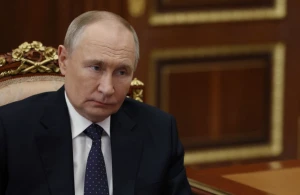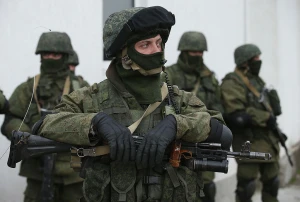
Ukraine's NATO membership: Timely proposal
Anders Fogh Rasmussen, former NATO Secretary General known for his work with Ukraine's leadership, has suggested fast-tracking Ukraine's entry into NATO. He advocates for this move at the upcoming North Atlantic Alliance summit in Washington. Rasmussen highlights that delays in Ukraine's Euro-Atlantic integration only fuel Russian President Putin's inclination to prolong the ongoing conflict
Rasmussen's proposal outlines admitting Ukraine to NATO with a specific focus. According to him, Article 5 of the North Atlantic Alliance Agreement should exclusively apply to territories presently under the legitimate control of the Ukrainian government. Notably, areas currently contested between Ukraine and Russia, presently under Russian control, would not fall under the purview of Article 5.
The ongoing debate about Ukraine's NATO accession, especially regarding unliberated territories, has persisted. The prevailing opinion among the majority of Western politicians is that Ukraine's full NATO membership should occur post-resolution of its conflict with Russia and the restoration of territorial integrity.
Over time, there's growing concern that the Russian-Ukrainian war could extend for years. For president Putin, the focus may not be solely on keeping control over captured Ukrainian territories, but on expanding this control to other regions. Post-2022, we are not dealing with a local conflict; instead, military operations span across Ukraine, considering systematic missile strikes and drone attacks.
Anders Fogh Rasmussen suggests that Ukraine joining NATO, even with Article 5 applying only to territories under the legitimate Ukrainian government, would signal to Putin that occupying parts of Ukraine won't halt its Euro-Atlantic integration. This could lead to a more localized conflict, as Putin wouldn't need to occupy or conquer new Ukrainian regions, he would not impede the country's European and Euro-Atlantic integration anyway.
While Kyiv previously gave conflicting signals, emphasizing NATO membership only with territorial integrity, the challenge lies in how NATO interprets this integrity. Ukraine can join NATO if member states respect its territorial integrity within internationally recognized borders.
However, Article 5 jurisdiction poses a different scenario. Rasmussen's proposal might ease Western leaders' concerns about being drawn into a conflict with Russia due to Ukraine's premature Euro-Atlantic integration.
Another crucial aspect is that both Ukraine and Western countries now seek the conflict's localization. The experience from the Middle East conflict is evident: the prolonged Russian-Ukrainian war spawns new conflicts.
The frequency of conflicts is on the rise every day. It's clear that the Middle East war won't be the final clash between democracies and dictatorships. There's a possibility that upcoming conflicts involving authoritarian countries could be even more hazardous than Russia's war in Ukraine and Hamas’ war with Israel. The Euro-Atlantic integration of Ukraine could be a fitting response to these challenges.
Predicting if the West will follow the advice of the former NATO Secretary General is challenging. Washington might not decide on Ukraine joining the North Atlantic Alliance. However, there are middle-ground options to consider. Ukraine's invitation to the Alliance could be a viable step, especially if the West recognizes the need for a substantial shift in the Russian-Ukrainian situation. If such an invitation is extended to Ukraine, it might follow the security guarantees model seen in recent years. Finland and Sweden received such assurances immediately after applying to NATO. Finland had these guarantees until joining NATO, and Sweden's security assurances from the USA and Great Britain persist, even with ongoing discussions about Sweden joining NATO. While there's hope for Sweden's NATO membership, it's uncertain when this might happen. Nonetheless, Sweden's security guarantees will persist, effectively turning the Baltic Sea into a de facto NATO-controlled region.
This model can be applied to Ukraine as well. If it ensures that Russia won't attempt to attack our entire country using means like drones, it eliminates the threat of a nuclear war—a perilous scenario where a nuclear nation strikes a non-nuclear one. Such security guarantees could replace the largely ineffective Budapest memorandum, which, in reality, failed to ensure Ukraine's security.
Exploring options becomes necessary, as the alternative is years of Russian-Ukrainian confrontation. This aligns with Russian president Putin's desire to exhaust and weaken the neighboring state through ongoing warfare.
About the author. Vitaliy Portnikov, journalist, the Shevchenko National Prize laureate.
The editors do not always share the opinions expressed by the blog authors.
- News















































